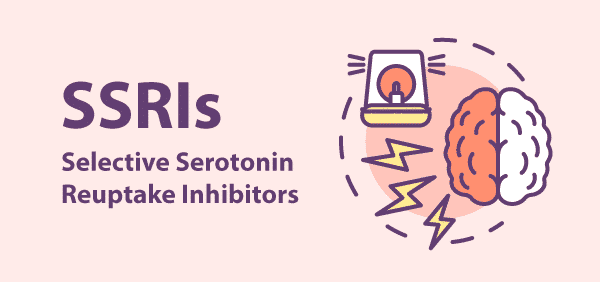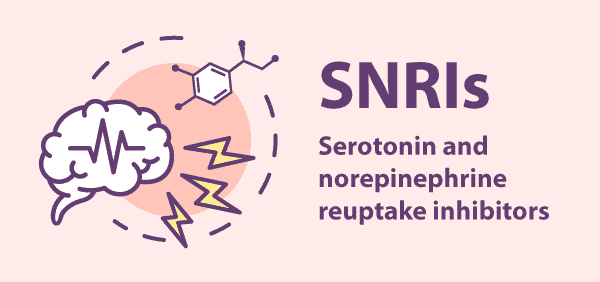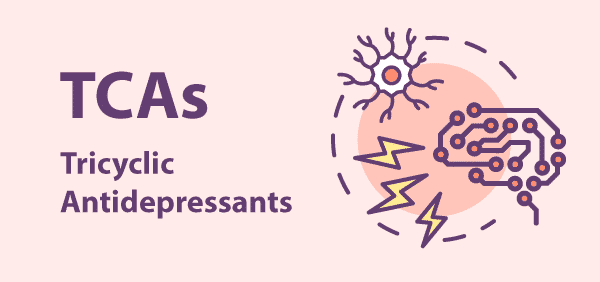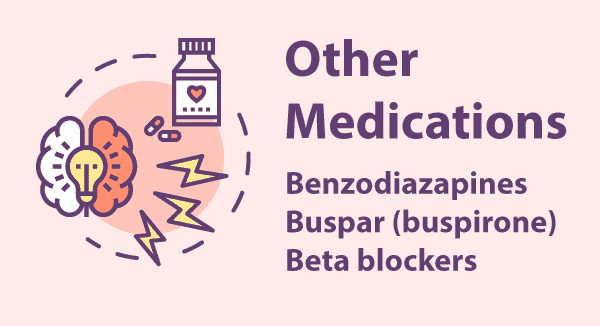Learn about the different types of anxiety medications. Find out how anti-anxiety medications are used and what they do.
Anti-anxiety medications, also called anxiolytics, are medications that are designed to reduce or inhibit anxiety.Anxietyis the body’s normal response to stress and may be helpful in some situations, such as providing motivation to study for an important test, or keeping you alert while walking alone at night. Anxiety is defined as theanticipation of a future threat. While anxiety is often a helpful response by the body, it can get out of hand, and some people may experience so much anxiety that it actually interferes with their ability to cope with a situation. Anxiety can also be caused by chemical imbalances in the brain. When this chemical imbalance occurs, it can lead to anxiety andpanic attacksin situations where anxiety is not normally experienced. This can be very disruptive to peoples’ lives.
Anxiety medication may be used for a variety of different types of anxiety, from treating those who have more mild forms due to a stressful life event, to treating those who have a severe anxiety disorderor experience frequent panic attacks. The type of anxiety medication used will depend on what works for a particular individual or on the biological cause of their anxiety.
The Role of Medication in Anxiety Treatment
While an exacttreatment plan for anxietywill vary for each individual, most anxiety treatment plans involve some combination of therapy and medications. Therapy for anxiety involves an assessment of the cause of the anxiety to determine if it is a normal response tostress, or if it is due to chemical imbalances in the brain.
There are many different types of therapy that can help with anxiety, and the exact type of therapy may differ for each individual. One common type of therapy is calledcognitive-behavioral therapy (CBT), which focuses on helping people understand the thoughts and feelings that motivate behavior and how to influence those internal processes to change the external outcome.
Treatment Can Be Life Changing. Reach out today.
Whether you are struggling with addiction, mental health or both, our expert team is here to guide you every step of the way. Don’t wait— reach out today to take the first step toward taking control of your life.
Anti-anxiety medications help to reduce or eliminate feelings of anxiety and are often used in combination with therapy. There is a misconception that doctors will give out anxiety medications to people who feel anxious and allow that person to take those medications for years without any additional treatment plan or options. In reality, the way that most doctors treat anxiety typically involves starting with therapy and using medications as a treatment aid.
Many doctors will not start someone on anxiety medications immediately unless it is a more severe case of anxiety. While some more advanced or more complex cases of anxiety-related health concerns may require long-term anxiety medication use, doctors typically try to use them over a shorter period of time and focus on resolving the cause of anxiety instead of just treating it with medications over a long-term period.
Background & History
Most of the advances in thehistory of anxiety medicationare more recent. Until the late 1800s, opioids were the anxiety drug of choice. However,opioids are addictive, dangerous in high quantities and can cause sedation. The effects of opioids that could help with anxiety are much more sedative than they are truly anxiety-reducing. Given the highly addictive nature of opioids, other types of medications were sought for anxiety treatment.
Barbiturates were the next major class of medications to be used for anxiety treatment, but were not much more effective than opioids and were still quite addictive. Phenothiazines, firstdevelopedin 1951, was next used to treat anxiety. Phenothiazines were found to be more effective than barbiturates but led to high rates of a negative side effect called tardive dyskinesia that caused involuntary movements of the face and lips.
Finally, in 1956, the first benzodiazepine, Librium, was invented. Benzodiazepines are a class of medications that are most commonly used in the treatment of acute anxiety today. Benzodiazepines are less addictive than opioids or barbiturates and are less likely to cause some of the severe side effects of phenothiazines.
While the road to the development of benzodiazepines was an important part of anxiety medication history, there is an equally importanttimelinefor other, long-term anxiety medications. Benzodiazepines treat more acute cases of anxiety but do not help to balance chemicals in the brain that can be the underlying cause. Medications that help to achieve this balance had their own distinct timeline.
The first medications that were used to treat the underlyingmental health conditionsthat cause anxiety were tricyclic antidepressants, with these medications first being developed and used in 1959. Tricyclic antidepressants are still used today, but cause a high rate oftardive dyskinesiaand other potential complications. The next major drug to be invented in this field was theselective serotonin reuptake inhibitor (SSRI)in 1974. These medications caused somewhat fewer side effects and were much more effective for most people with anxiety.Serotonin–norepinephrine reuptake inhibitors (SNRIs)were the last major class of medications invented in this field, first being developed in 1993.
How Does Anti-Anxiety Medication Work?
People who are considering using anti-anxiety medication often wonder, “how does anti-anxiety medication work?” The way in which anti-anxiety medication works depends on the type of medication being used. Most of these medications work by either activating receptors in the brain that reduce anxiety, or by decreasing the reabsorption of chemicals in the brain into brain cells, making a higher amount of that particular chemical and changing the chemical balance in the brain.
Some people find the idea of changing chemistry within the brain disconcerting, however, these medications are carefully examined by the Food and Drug Administration (FDA) before being sold and are commonly accepted by most medical scientists as helpful for the conditions they are intended to treat.
Types of Anxiety Medications
There are several types of anxiety medications that can be used to treat different types of anxiety disorders. Which medication is used depends upon the particular situation, the unique needs of the individual and whether the goal is to reduce anxiety over time or to treat a particular acute episode of anxiety. An anti-anxiety medication list will typically include:
- SSRIs
- SNRIs
- Tricyclic Antidepressants
- Benzodiazepines
- Buspar (buspirone)
- Beta-blockers
These common anti-anxiety medications are used for many different situations, and some of these medications may not be best for certain people. The decision of which anxiety medication to use should be made by a doctor who is able to assess the person needing medication. As everyone’s situation is different, there are a variety of factors that must be taken into consideration prior to starting a particular anti-anxiety medication.
SSRIs
SSRIs, also known asselective serotonin reuptake inhibitors, are often used in the long-term treatment of anxiety. They will not treat an acute episode of anxiety, but help to regulate chemical imbalances that can lead to anxiety. SSRIs work by decreasing the rate at which brain cells absorb a chemical called serotonin. This leads to more serotonin being present in the brain, causing it to activate more serotonin receptors and increasing brain signals. This change in neurological activity can help to decrease anxiety.

SNRI’s
SNRIs, orserotonin and norepinephrine reuptake inhibitors, are commonly used to treat anxiety over a longer period of time and are not likely to help acute episodes of anxiety. SNRIs work very much like SSRIs, except that the chemical they increase in the brain is called norepinephrine. Increasing the amounts of this chemical can also lead to a decrease in anxiety over a longer period of time. Typically, SSRIs are used before SNRIs, as increasing serotonin is normally more effective at treating anxiety than increasing norepinephrine.
Related Topic:SSRI vs SNRI

Tricyclic Antidepressants (TCAs)
Tricyclic antidepressants are used in the long-term treatment of anxiety and are not intended to treat acute episodes of anxiety. Use of this type of medication has declined with the availability of SSRIs and SNRIs, as these medications are typically more effective and usually have fewer side effects.
Some people, however, may still benefit from using tricyclic antidepressants over newer medications. Tricyclic antidepressants have a similar effect on the brain to SSRIs and SNRIs, but accomplish it by a different mechanism and are not quite as effective as either medication. Tricyclic antidepressants ultimately increase the levels of serotonin and/or norepinephrine, leading to decreased long-term anxiety.

Benzodiazepines
Benzodiazepines are the main medication used for treatingacute or sudden episodes of anxietyand are designed to reduce anxiety as soon as they are digested. Doctors will often use these medications to treat panic attacks, anxiety before surgery or any other sudden anxiety-producing event. Benzodiazepines work by activating gamma-Aminobutyric acid (GABA) receptors in the brain, causing a sedative and anxiety-reducing effect. While benzodiazepines are effective at treating the symptoms of anxiety, they do not treat underlying causes of anxiety and are not typically used over a long period of time, but rather on more of an as-needed basis.

Other Medications
There are other medications that are used in the long-term treatment of anxiety but are less common. These medications includebuspirone (Buspar)and beta-blockers. The use ofbuspirone for anxietyis intended to be a long-term treatment. Buspirone acts on a very specific receptor in the brain and changes the levels of several chemicals, helping to balance brain activity. Specifically, it decreases serotonin levels while increasing dopamine and norepinephrine levels. While buspirone is not normally as effective as other medications at treating long-term anxiety or the problems that cause anxiety, it can be a useful alternative for people who find other medications to be ineffective.
The use ofbeta-blockersfor anxiety is intended to treat the symptoms of anxiety and not the underlying chemical imbalances or psychological conditions that lead to it. Beta-blockers are typically used to lower blood pressure, but they can also help reduce the effect of adrenaline on the brain, leading to reduced anxiety.
Effectiveness of Anti-Anxiety Medication
The best anti-anxiety medication for one person may not be the same medication that works for someone else. Different types of chemical imbalances coupled with different treatment goals may greatly affect how well an anxiety medication works. Because of the many different causes of anxiety, it is difficult to predict exactly how well an anxiety medication will work. The effectiveness of anxiety medication on someone who has multiple panic attacks each day, for example, will likely be less than on someone who is anxious because they are about to have routine surgery. Because there are so many different causes of anxiety, it is impossible to know how well anxiety medication will work for each situation.
While it is impossible to predict what anxiety medication will work best for a particular person in a certain situation, some anxiety medications generally tend to work better than others.SSRIstend to work the best and be thefirst treatment choicefor long-term anxiety. While these medications will not work for everyone, they are typically thought to be the most helpful by most healthcare providers. For the treatment of acute episodes of anxiety, benzodiazepines are thought to be the best medication. Benzodiazepines are very effective at treating the symptoms of anxiety in a short-term situation.
Side Effects
With any medications, there can be side effects.Anxiety medication side effectsvary based on the particular medications that are being used, with SSRIs, SNRIs, tricyclic antidepressants, and buspirone all sharing several side effects due to the similarity in the ways they act. Some common side effects for these medications include:
- Blurred vision
- Dizziness or lightheadedness
- Drowsiness or fatigue
- Dry mouth
- Agitation or restlessness
- Changes in weight
- Headaches
- Nausea
- Constipation
- Decreased libido or sexual ability
- Difficulty sleeping
- Excessive sweating
- Changes in appetite
- Difficulty urinating
- Tremors
Some of the more serious anti-anxiety medication side effects for these drugs include tardive dyskinesia andsuicidal ideation. In addition, certain tricyclic antidepressants can lead to weight loss, but should not be taken in order to lose weight, only to treat a condition for which the drug was created.
The other main type of anxiety medications that can cause side effects are benzodiazepines. Someside effectsthat may be experienced during benzodiazepine use include:
- Blurred vision
- Confusion
- Headaches
- Dizziness
- Nausea
- Drowsiness or fatigue
- Decreased memory
- Changes in cognitive function
- Decreased balance
- Slurred speech
- Decreased coordination
- Withdrawal symptoms when stopped
While benzodiazepines can create some serious side effects, the more serious side effects are less common, and benzodiazepines can be very helpful in treating episodes of anxiety.
Beta-blockers do not have several of the negative side effects that other anti-anxiety medications have; this is one of the main benefits of using them. They can, however, create low blood pressure, and blood pressure should be carefully monitored while using beta-blockers.
Possible Interactions
There are severalanti-anxiety drug interactionsthat could occur while using these types of medication. Some of the more prominent interactions for certain medications include:
- SSRIs:Should not be used with monoamine oxidase inhibitors (MAOIs). May increase the risk of bleeding if combined with anticoagulants or other medications that create a risk of bleeding.
- SNRIs:Should not be used with MAOIs. May increase the risk ofliver injury when combined with alcohol.
- Tricyclic antidepressants:Should not be used with MAOIs. May have an increased sedative effect when combined with alcohol or central nervous suppressants. Any anticholinergic drugs may worsen the side effects of tricyclic antidepressants.
- Benzodiazepines:May interact with grapefruit juice or calcium channel blockers. May also cause severe sedation or cessation of breathing when mixed with other central nervous system suppressants, such as opioids.
This list does not include every possible interaction and there are still interactions being discovered. Someone who is concerned about the interaction between anti-anxiety medications and other substances, medications or foods should consult with their doctor about their individual situation.
Taking Anti-Anxiety Medication While Pregnant
Taking anti-anxiety medication while pregnant should be avoided in most cases. Studies have shown that benzodiazepines have been known to cause risk to the development of the baby, with some being likely to end the pregnancy. The only anti-anxiety medication that has been shown to have no risk in animal studies (Pregnancy category B) is the tricyclic antidepressant Maprotiline. All other tricyclic antidepressants, SSRIs and SNRIs are pregnancy category C or D, meaning that it is unknown if there is a risk to development or that there is a known risk. Questions regarding the risk vs. benefit for a certain situation should be directed to the individual’s doctor.
Stopping Anxiety Medication
Some people wonder how to stop taking anxiety medication and what happens when you stop taking anxiety medication. Stopping anxiety medication cold turkey can be dangerous. Stopping benzodiazepines suddenly can causewithdrawal symptomsand lead to complications.
Long-term anti-anxiety medications are designed to balance the chemicals in the brain, and stopping them can lead to changes in the levels of these chemicals, causing severe disruption to the chemistry of the brain and thought processes. Someone who is wanting to stop taking anti-anxiety medications should discuss with their doctor how this can be done and the effects that it could cause. A doctor will be able to assess the risks of stopping these medications and can provide advice on the best way to stop.
What to Do in Case of Overdose
Overdosing on anxiety medication can be very dangerous. Many of the long-term anti-anxiety medications affect brain chemistry, and overdosing on these medications can lead to changes in brain function that can damage the body and, in some circumstances, lead to death.
Benzodiazepines in large doses will suppress breathing and may cause a complete cessation of breathing. Medication can be given in hospitals to reverse the effects of abenzodiazepine overdosein severe cases. Someone who has experienced an anti-anxiety medication overdose should call 911 and seek immediate medical attention. If you are with someone who has overdosed on anti-anxiety medication, you should call 911 for them. It is important to find out what type of medication was overdosed on, how many pills were used and the strength of the dose for each pill.
Get More Information on Anti-Anxiety Medication
There are several resources that can be used to find more information on anti-anxiety medications, including their side effects, reasons for use and effectiveness.
- Medscapeis a good resource for learning information about medications, including their individual side effects, doses, common uses and miscellaneous information particular to medications.
- Merck Manualsis another reliable, scientific resource for information about medications.
- The Recovery Villagehas several sources of information that will provide general answers to many of the common questions about anti-anxiety medications.
Feelings of depression or anxiety can lead to suicidal thinking.If you or a loved one is experiencing suicidal thoughts or tendencies, call theNational Suicide Prevention Hotlineat1-800-273-8255.
If you have specific questions about a particular person or situation, consult with your doctor to get relevant information for your specific circumstances. Understanding the history and uses for anti-anxiety drugs can help you make informed, safe decisions about medications.








